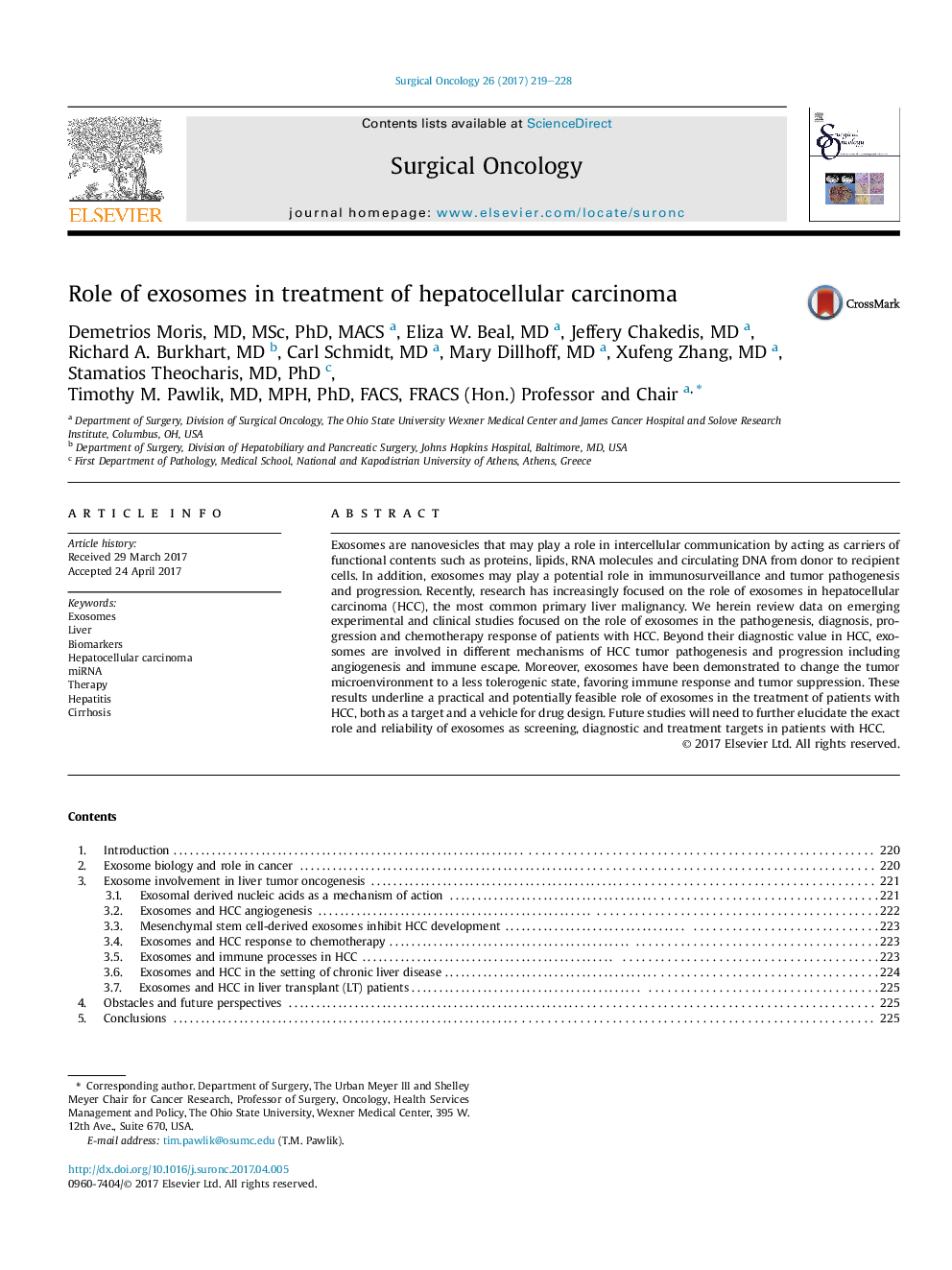| Article ID | Journal | Published Year | Pages | File Type |
|---|---|---|---|---|
| 5702371 | Surgical Oncology | 2017 | 10 Pages |
Abstract
Exosomes are nanovesicles that may play a role in intercellular communication by acting as carriers of functional contents such as proteins, lipids, RNA molecules and circulating DNA from donor to recipient cells. In addition, exosomes may play a potential role in immunosurveillance and tumor pathogenesis and progression. Recently, research has increasingly focused on the role of exosomes in hepatocellular carcinoma (HCC), the most common primary liver malignancy. We herein review data on emerging experimental and clinical studies focused on the role of exosomes in the pathogenesis, diagnosis, progression and chemotherapy response of patients with HCC. Beyond their diagnostic value in HCC, exosomes are involved in different mechanisms of HCC tumor pathogenesis and progression including angiogenesis and immune escape. Moreover, exosomes have been demonstrated to change the tumor microenvironment to a less tolerogenic state, favoring immune response and tumor suppression. These results underline a practical and potentially feasible role of exosomes in the treatment of patients with HCC, both as a target and a vehicle for drug design. Future studies will need to further elucidate the exact role and reliability of exosomes as screening, diagnostic and treatment targets in patients with HCC.
Related Topics
Health Sciences
Medicine and Dentistry
Oncology
Authors
Demetrios MD, MSc, PhD, MACS, Eliza W. MD, Jeffery MD, Richard A. MD, Carl MD, Mary MD, Xufeng MD, Stamatios MD, PhD, Timothy M. (Professor and Chair),
